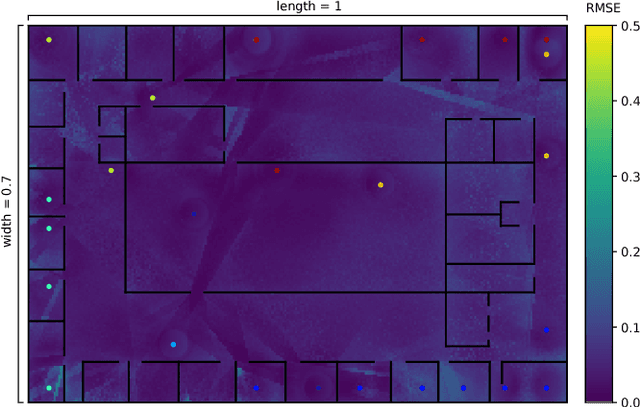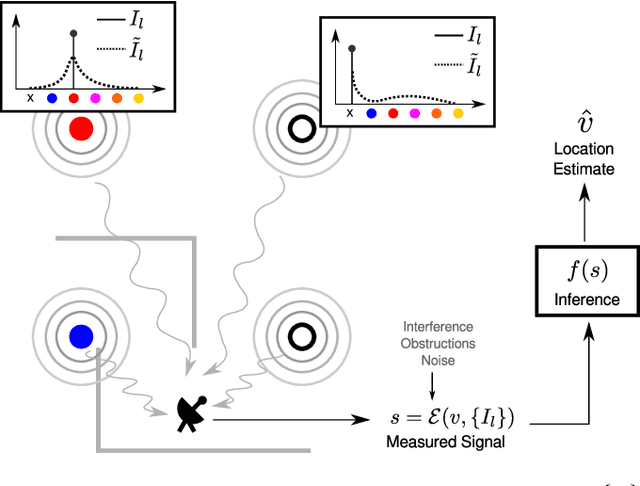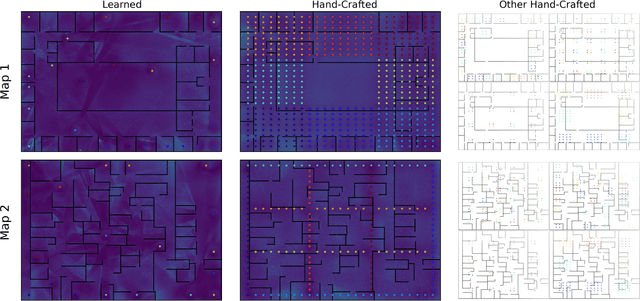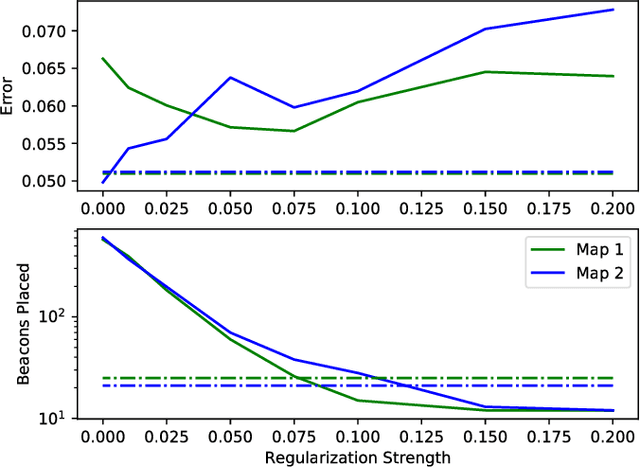Jointly Optimizing Placement and Inference for Beacon-based Localization
Paper and Code
Sep 20, 2017



The ability of robots to estimate their location is crucial for a wide variety of autonomous operations. In settings where GPS is unavailable, measurements of transmissions from fixed beacons provide an effective means of estimating a robot's location as it navigates. The accuracy of such a beacon-based localization system depends both on how beacons are distributed in the environment, and how the robot's location is inferred based on noisy and potentially ambiguous measurements. We propose an approach for making these design decisions automatically and without expert supervision, by explicitly searching for the placement and inference strategies that, together, are optimal for a given environment. Since this search is computationally expensive, our approach encodes beacon placement as a differential neural layer that interfaces with a neural network for inference. This formulation allows us to employ standard techniques for training neural networks to carry out the joint optimization. We evaluate this approach on a variety of environments and settings, and find that it is able to discover designs that enable high localization accuracy.
 Add to Chrome
Add to Chrome Add to Firefox
Add to Firefox Add to Edge
Add to Edge